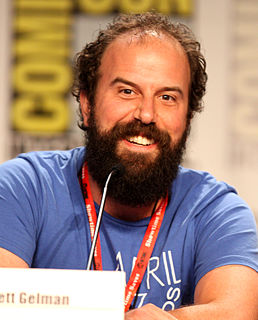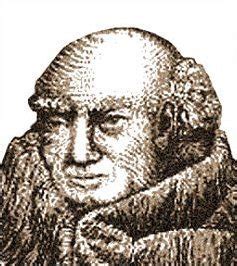Ein Zitat von Mark Twain
Denkt der Mensch? NEIN; Er denkt, sinniert, überlegt, argumentiert aber nicht ... das heißt in den beiden Dingen, die die besondere Domäne des Herzens sind, nicht des Geistes, Politik und Religion. Er will die andere Seite nicht kennen. Er will Argumente und Statistiken für seine Seite und nichts weiter.
Verwandte Zitate
Es gibt zwei Exzesse: die Vernunft ausschließen, nichts als die Vernunft zulassen. Die höchste Errungenschaft der Vernunft besteht darin, zu erkennen, dass es eine Grenze der Vernunft gibt. Der letzte Schritt der Vernunft ist die Erkenntnis, dass es unendlich viele Dinge gibt, die über sie hinausgehen. Es ist nur schwach, wenn es nicht so weit geht, dies zu erkennen.
Als jemand, der auf der liberaleren Seite der Dinge steht, denke ich persönlich, dass diese Seite etwas weniger offen sein sollte. Ich weiß, das ist Teil dessen, was es bedeutet, auf der liberaleren Seite der Dinge zu stehen, aber diese Eigenschaft kann nicht mehr wirklich Teil unserer Struktur sein. Der einfache Grund dafür ist, dass die Gegenseite unsere Offenheit zu ihrem vollen Vorteil nutzt.
Konservative halten sich Zeit. Und sie verstehen, wie Corey Robin in seinem unverzichtbaren Buch „The Reactionary Mind“ erklärt, dass die Richtung der Menschheitsgeschichte nicht auf ihrer Seite ist – deshalb sind sie Reaktionäre – weil die Zivilisation unter sonst gleichen Bedingungen tatsächlich zu mehr Inklusion tendiert. mehr Emanzipation, mehr Liberalismus.
Handlungen werden nicht aufgrund ihrer Verdienste als gut oder schlecht eingestuft, sondern danach, wer sie ausführt. Es gibt fast keine Art von Verbrechen – Folter, Inhaftierung ohne Gerichtsverfahren, Ermordung, Bombardierung von Zivilisten –, die nicht ihre moralische Farbe ändert, wenn sie von „unserer“ Seite begangen wird. Der Nationalist missbilligt nicht nur die von seiner eigenen Seite begangenen Gräueltaten nicht, er hat auch die bemerkenswerte Fähigkeit, nicht einmal davon zu hören.
Er hat seine gute Seite und seine schlechte Seite. Seine Majestät ist in der Tat sehr dunkel, wenn er sein möchte. Als er jung war, traf er eine Wahl, wie ein Baum es tut, wenn er sich entscheidet, in die eine oder andere Richtung zu wachsen. Er wurde groß und grün, bis er den ganzen Wald überschattete, aber die meisten seiner Zweige waren verdreht.
Alle Wahrheit wird durch Offenbarung gegeben, sei sie allgemein oder speziell, und sie muss durch Vernunft empfangen werden. Die Vernunft ist das von Gott gegebene Mittel zur Entdeckung der Wahrheit, die Gott offenbart, sei es in seiner Welt oder in seinem Wort. Während Gott mit der Wahrheit das Herz erreichen möchte, geht er nicht am Verstand vorbei.
Wenn wir alles der Vernunft unterwerfen, bleibt unserer Religion nichts Geheimnisvolles oder Übernatürliches übrig. Wenn wir gegen die Prinzipien der Vernunft verstoßen, wird unsere Religion absurd und lächerlich sein. . . Es gibt zwei gleichermaßen gefährliche Extreme: die Vernunft ausschließen, nichts als die Vernunft zulassen.
Das Herz hat seine Gründe, von denen die Vernunft nichts weiß. Wir spüren es in tausend Dingen. Ich sage, dass das Herz das universelle Wesen von Natur aus liebt und sich selbst von Natur aus liebt. und es gibt sich dem einen oder anderen hin und verhärtet sich gegen den einen oder anderen, ganz wie es ihm gefällt ... Es ist das Herz, das Gott fühlt, nicht der Verstand; das ist Glaube.
Denn die Autorität geht aus der wahren Vernunft hervor, aber die Vernunft geht sicherlich nicht aus der Autorität hervor. Denn jede Autorität, die nicht durch die wahre Vernunft gestützt wird, wird als schwach angesehen, während die wahre Vernunft durch ihre eigenen Kräfte fest und unveränderlich gehalten wird und nicht der Bestätigung durch die Zustimmung irgendeiner Autorität bedarf.
Ist die religiöse Überzeugung ein wichtiger Grund für das Töten? Unbestreitbar ist das oft der Fall. Oftmals ist es auch der einzige zwingende Grund dafür, das Töten zu verweigern, barmherzig zu sein oder Frieden zu suchen; Nur die tiefste Unkenntnis der Geschichte könnte verhindern, dass man dies erkennt. Denn die Wahrheit ist, dass Religion und Irreligion kulturelle Variablen sind, Töten jedoch eine menschliche Konstante.
Lindert die offene Wunde in der Brust eines anderen den Schmerz der klaffenden Wunde in unserer eigenen? Oder stillt das Blut, das aus der Seite eines anderen Menschen strömt, das, was aus unserer eigenen Seite fließt? Vermindert die allgemeine Angst unserer Mitgeschöpfe unsere eigene private und besondere Angst? Nein, nein, jeder leidet auf seine eigene Weise, jeder kämpft mit seiner eigenen Trauer, jeder vergießt seine eigenen Tränen.
Denn vor allem vertrete ich die Vorstellung von Möglichkeit und Notwendigkeit, wonach es einige Dinge gibt, die möglich, aber dennoch nicht notwendig sind und die in Wirklichkeit nicht existieren. Daraus folgt, dass eine Vernunft, die einen freien Geist immer dazu zwingt, eine Sache einer anderen vorzuziehen (sei es, dass diese Vernunft aus der Vollkommenheit einer Sache wie in Gott oder aus unserer Unvollkommenheit resultiert), unsere Freiheit nicht ausschließt.



































